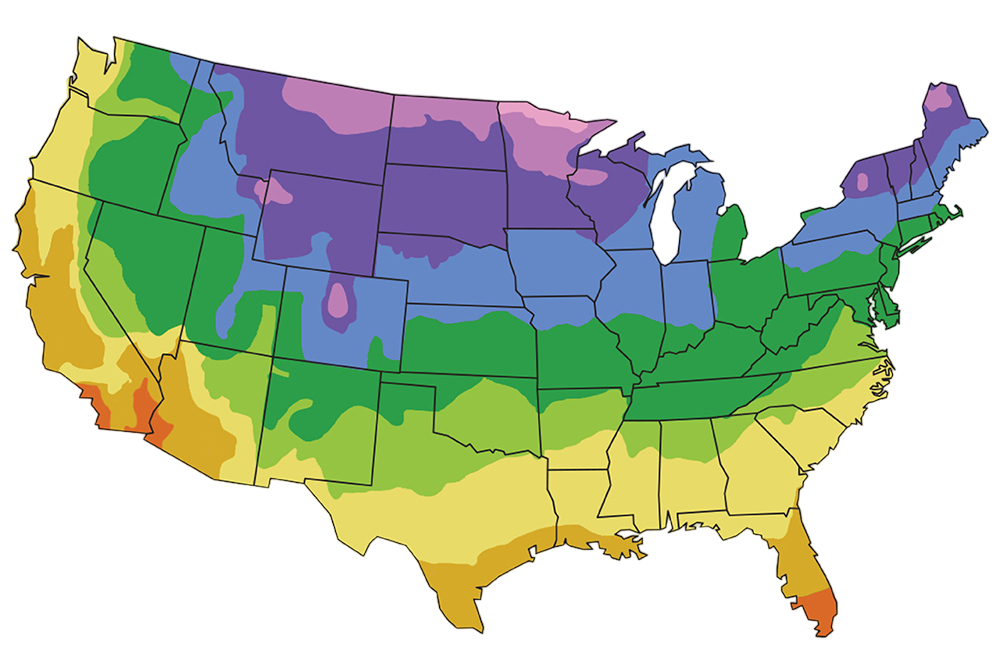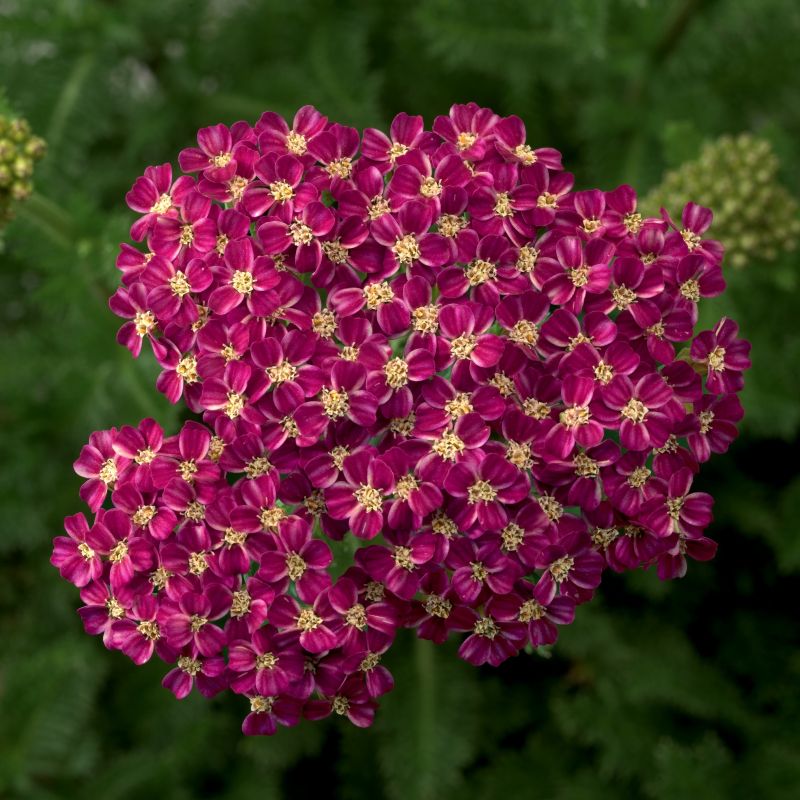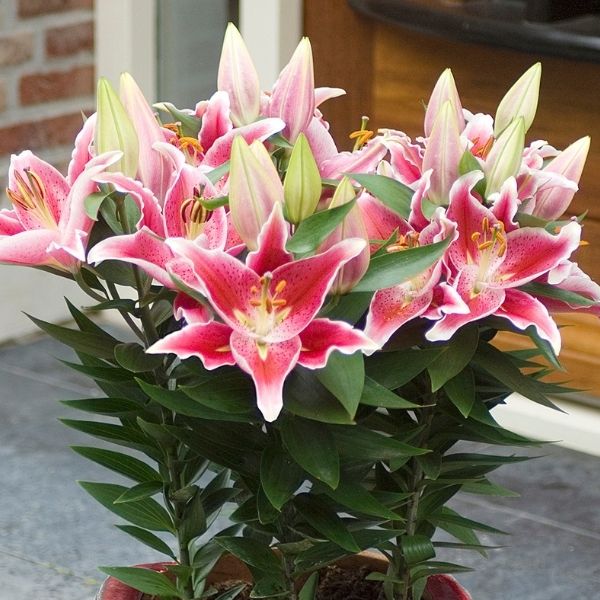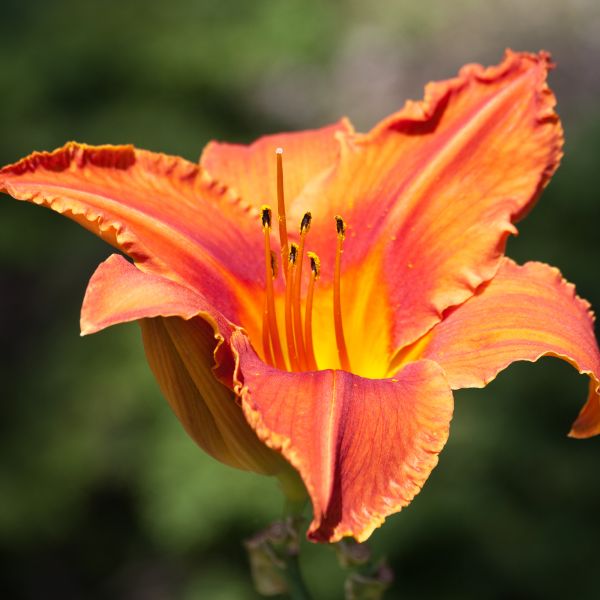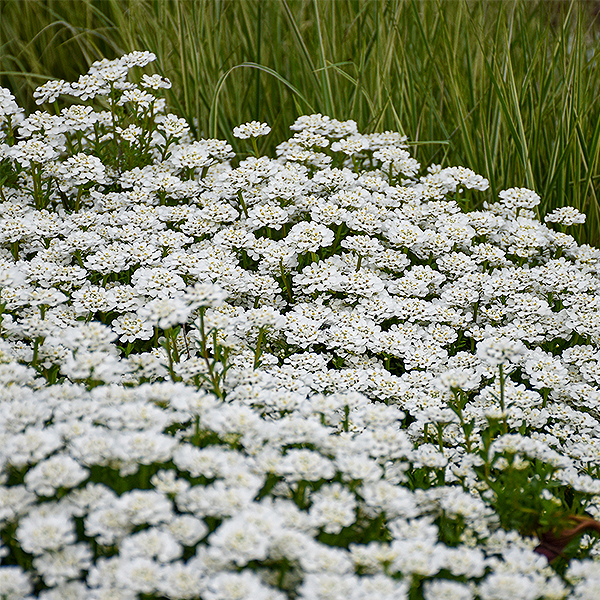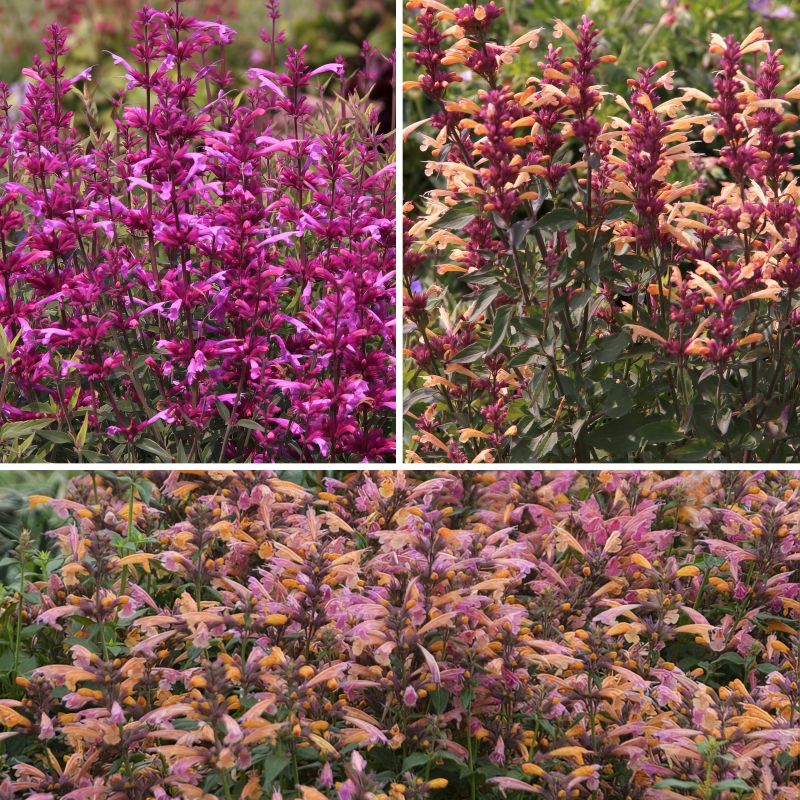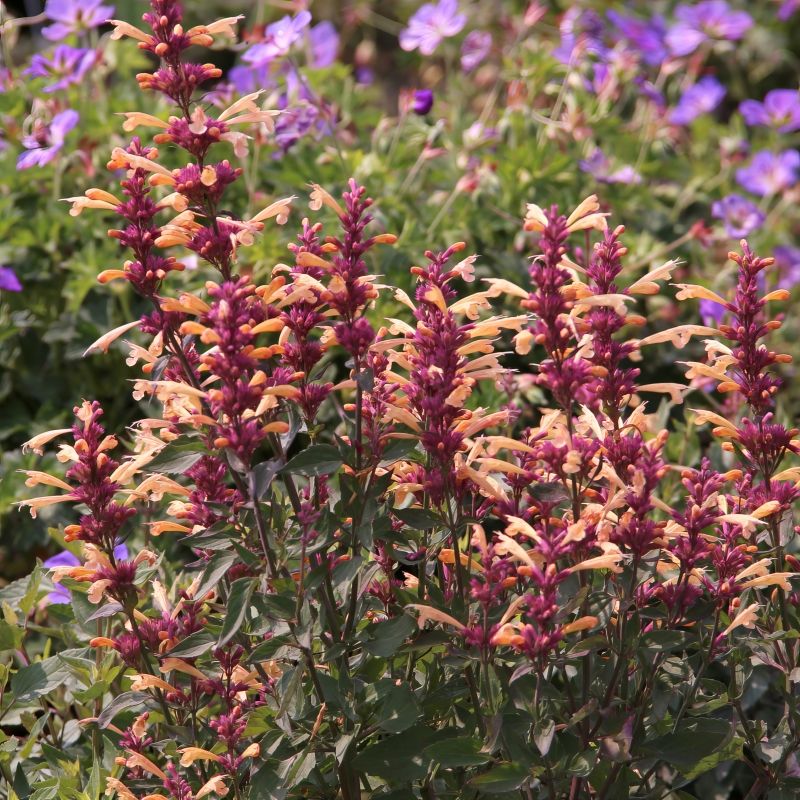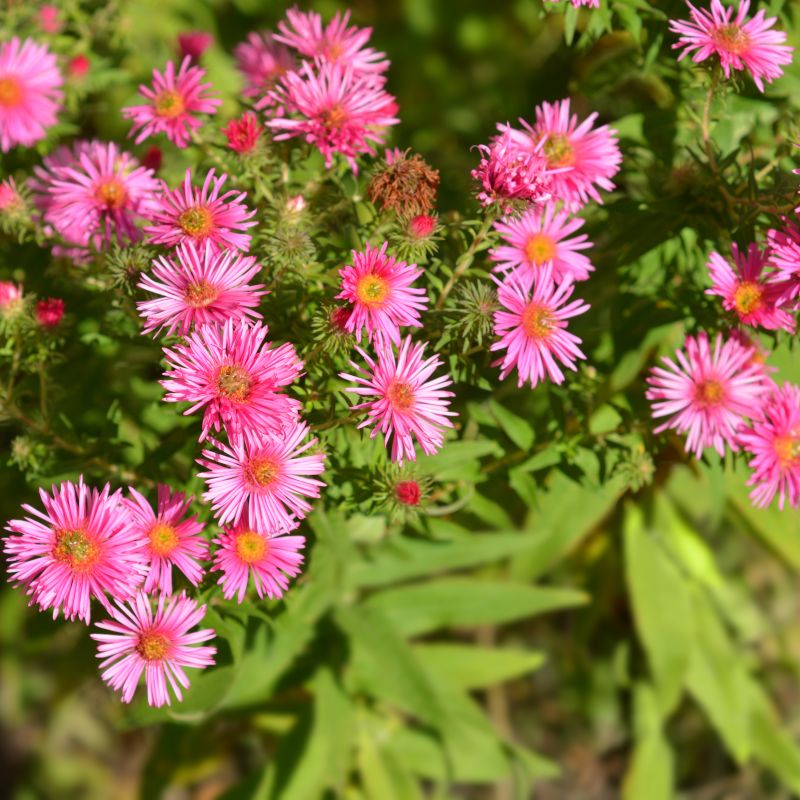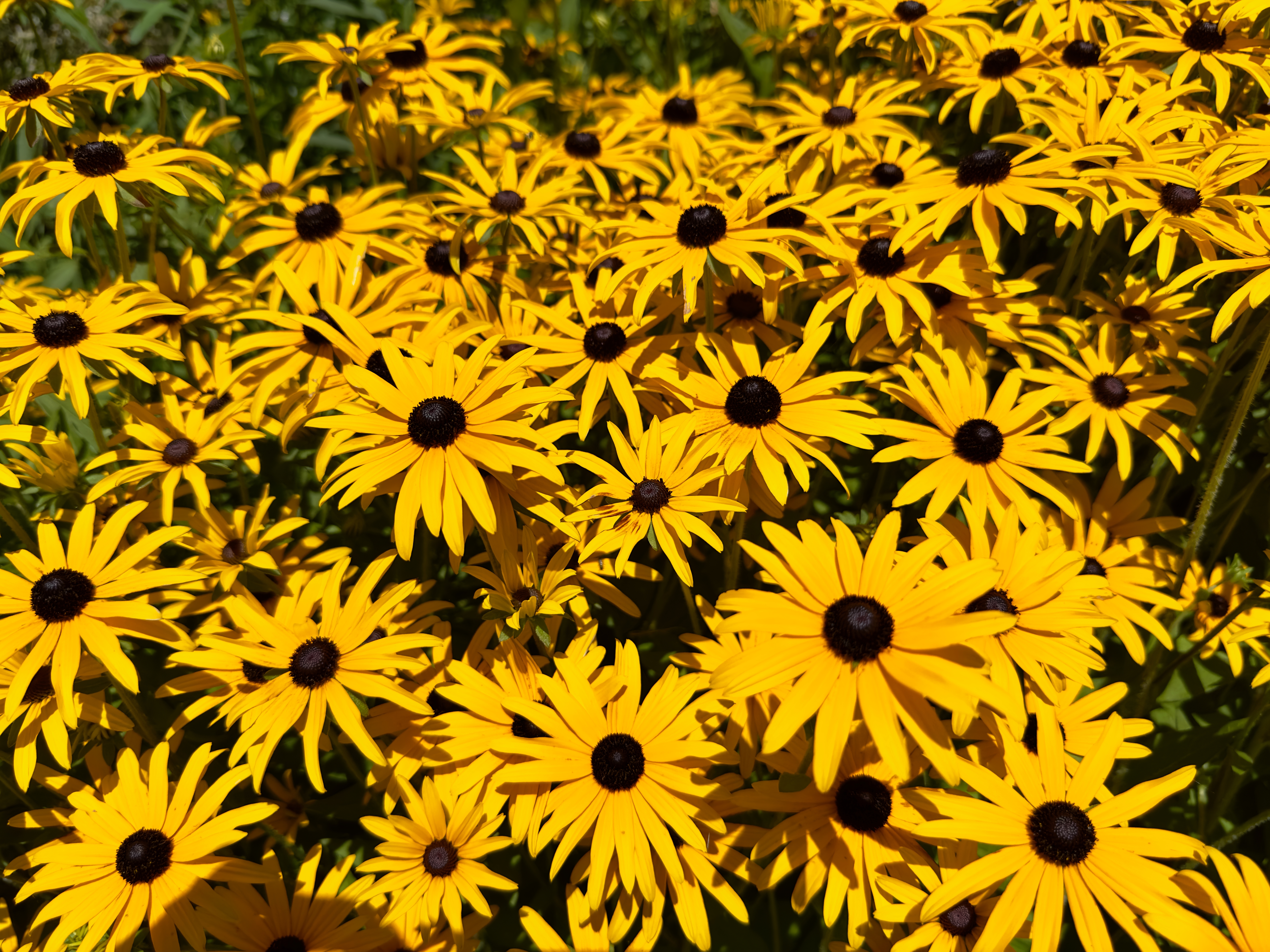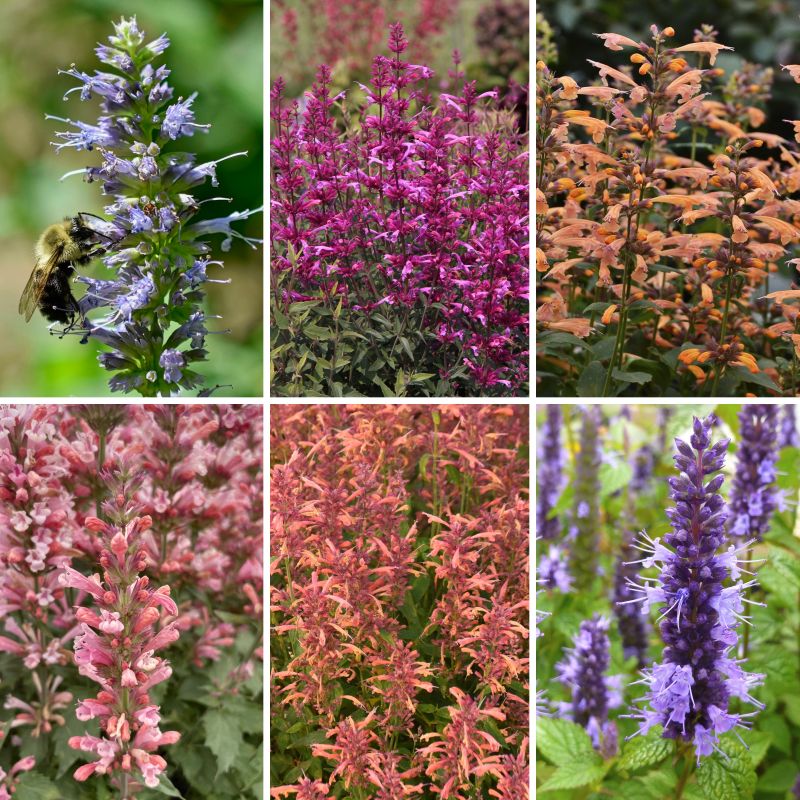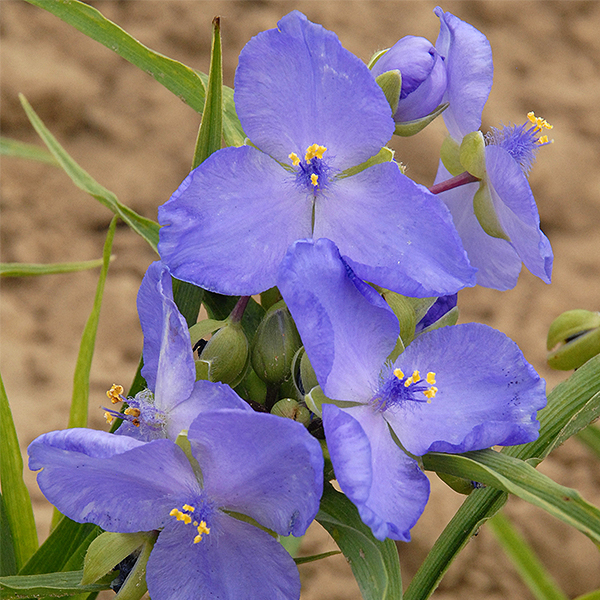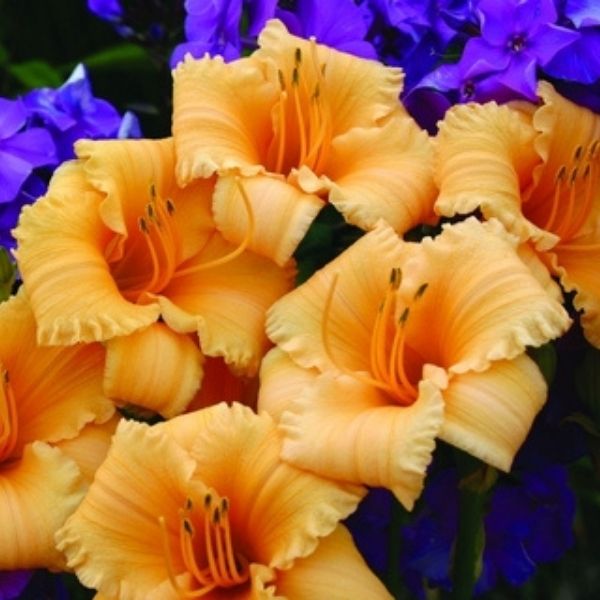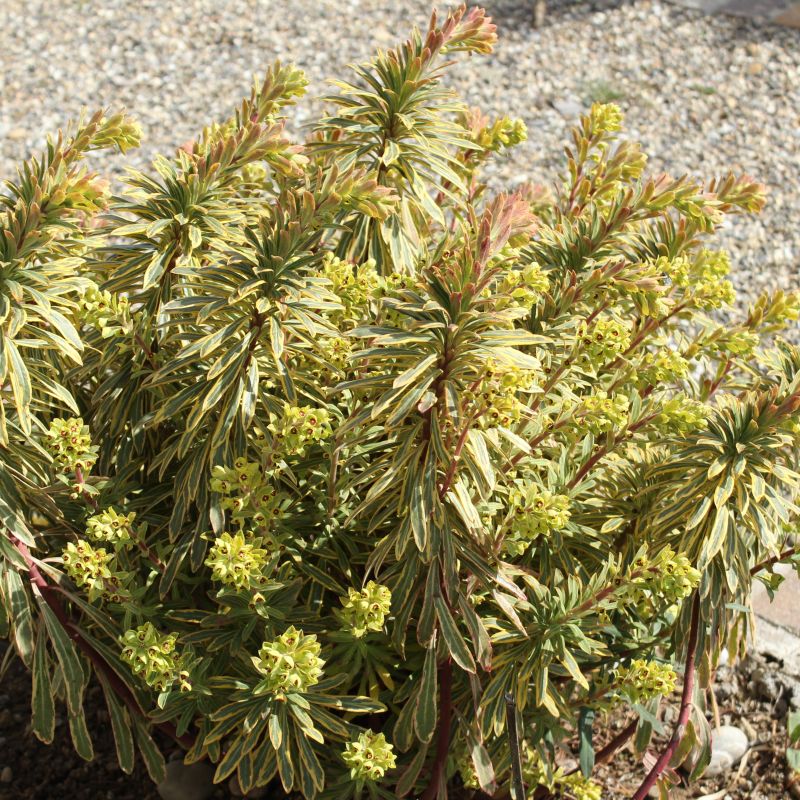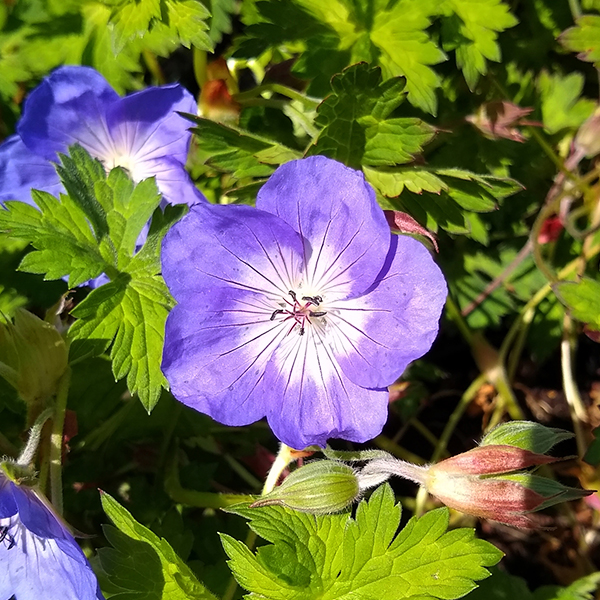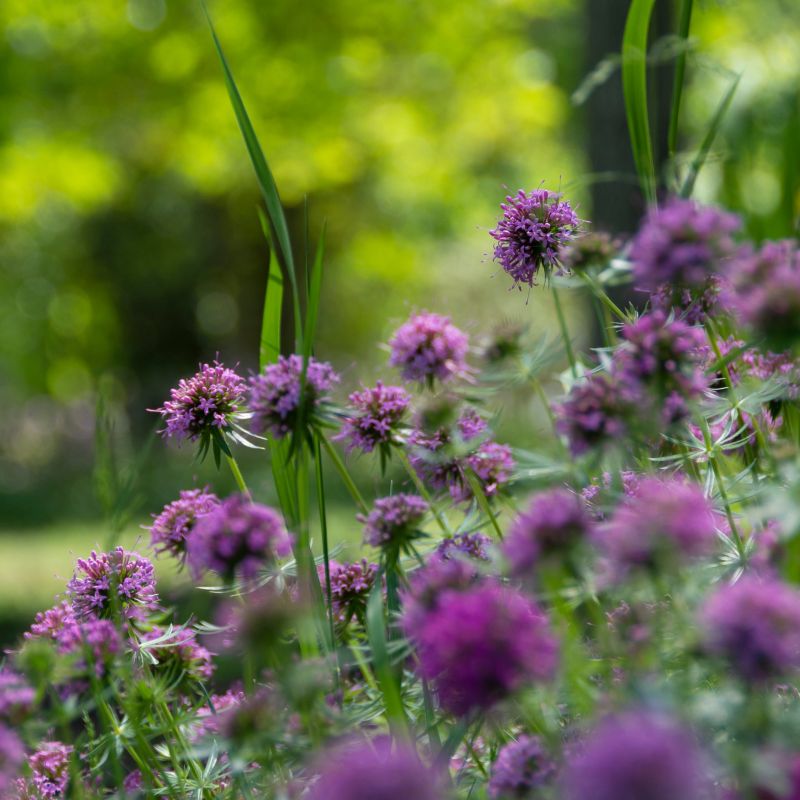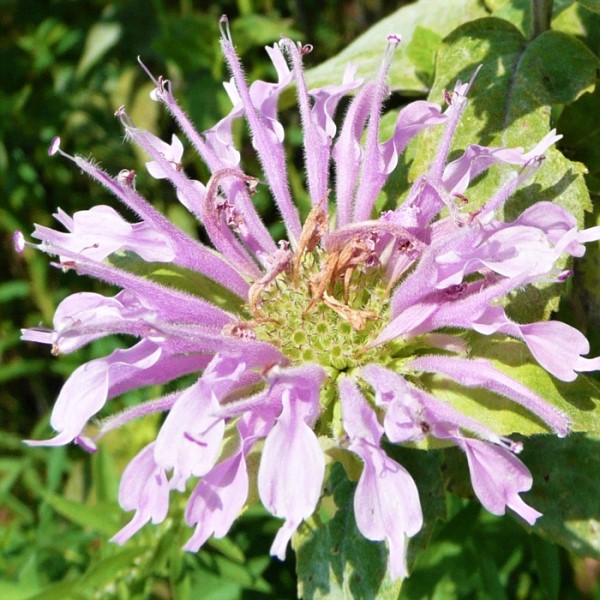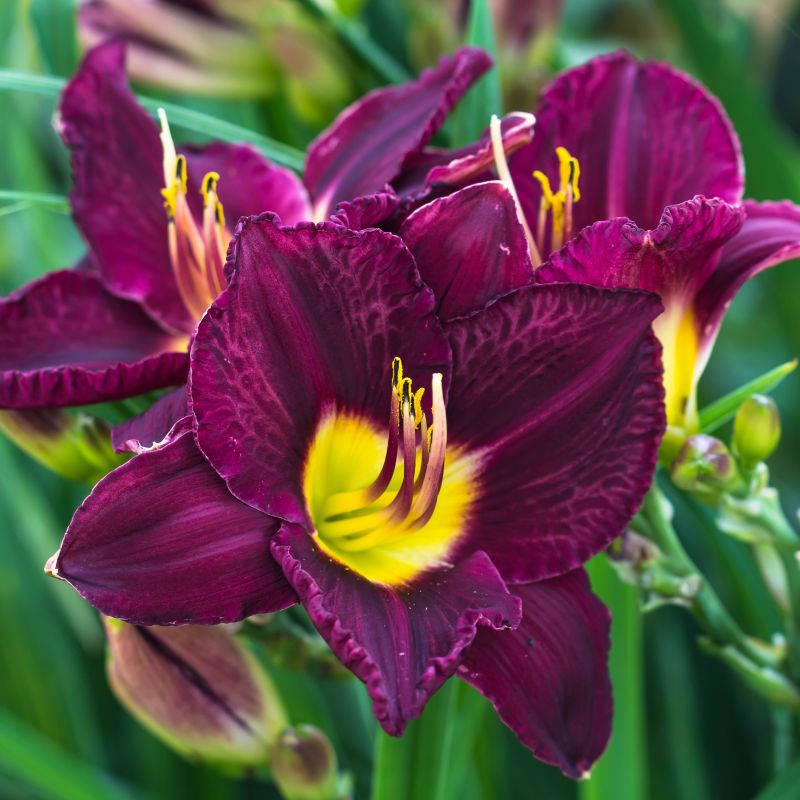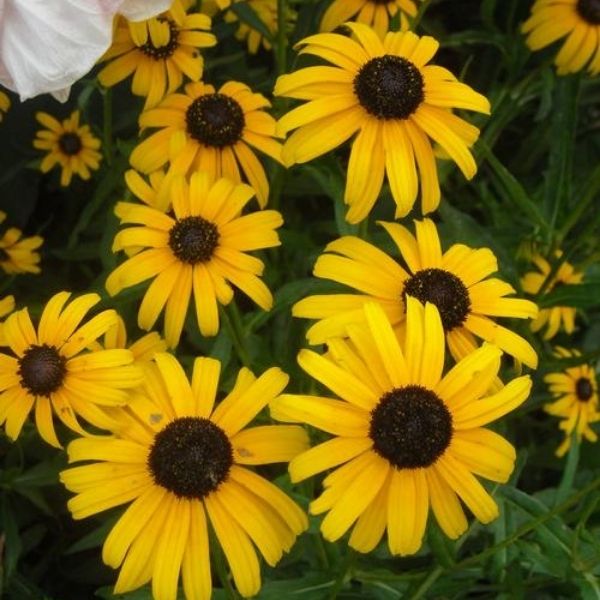
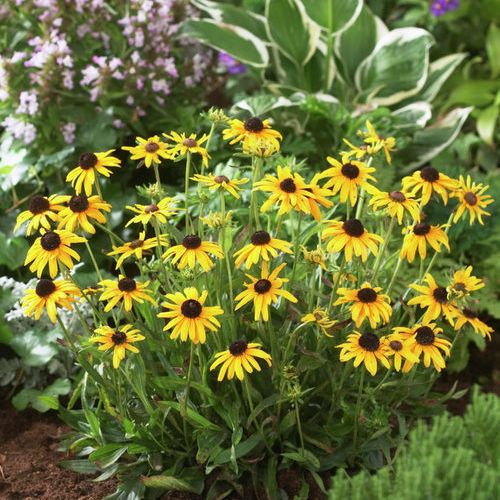
Little Suzy Black Eyed Susan
Rudbeckia fulgida var. speciosa 'Viette's Little Suzy'
12 reviews
Little Suzy Black Eyed Susan
Rudbeckia fulgida var. speciosa 'Viette's Little Suzy'
12 reviews
- Vibrant yellow flowers add a pop of color to any garden
- Drought-tolerant and low-maintenance once established
- Attracts butterflies and pollinators to your yard
$30.00
$43.00
30% Off
- Ships to 43215 in 3 to 7 days
- Free Shipping Over $150
- Plant Arrival Guarantee
- In Stock
- Free Plant Consult
$200
- Premium 1 Gallon
- 1 Gallon
Why Little Suzy Black Eyed Susan?
Little Suzy Black Eyed Susan is a compact and drought-tolerant perennial with bright yellow flowers that bloom from late summer to early fall. This variety is perfect for small gardens or containers, as it only grows to about 12 inches tall. Little Suzy is also loved by pollinators, making it a great addition to any garden looking to attract butterflies and bees.
People who loved this plant also bought
Sunlight
The Little Suzy Black Eyed Susan plant requires full sun to partial shade for optimal growth and flowering. It should receive at least 6-8 hours of direct sunlight each day to thrive and bloom abundantly. Planting in a sunny spot will ensure healthy growth
Watering
Little Suzy Black Eyed Susan plants have a moderate watering requirement. They prefer well-draining soil and should be watered whenever the top inch of soil feels dry. Avoid overwatering, as this can lead to root rot. Water deeply and consistently during p
Fertilizing
Little Suzy Black Eyed Susan requires a well-draining soil rich in organic matter. Fertilize the plant once a month during the growing season with a balanced fertilizer to promote healthy growth and vibrant blooms. Avoid over-fertilizing, as this can lead
Little Suzy Black Eyed Susan (Rudbeckia fulgida var. speciosa 'Viette's Little Suzy')
Little Suzy Black Eyed Susan is a compact perennial that produces masses of golden yellow, daisy-like flowers with dark centers. It blooms profusely from mid-summer to early fall, attracting butterflies and bees to the garden.
This variety is a dwarf version of the traditional Black Eyed Susan, making it ideal for small gardens or containers. It grows to a height of about 12-18 inches and spreads about 12-24 inches, forming a dense clump of colorful flowers.
Little Suzy Black Eyed Susan prefers full sun to partial shade and well-drained soil. It is drought tolerant once established and generally low maintenance. Deadheading spent blooms can encourage more flowers to bloom throughout the season.
Whether planted in borders, mixed beds, or as a mass planting, Little Suzy Black Eyed Susan adds a bright splash of color to any garden. This cheerful perennial is sure to become a favorite for its long-lasting blooms and easy care requirements.
Plant Information:
| Botanical Name: | Rudbeckia fulgida var. speciosa 'Viette's Little Suzy' |
| USDA Zones: | 4 - 10 |
| Water: | Moderate to Low |
| Exposure: | Full Sun |
| Soil Needs: | Well Drained |
| Mature Height: | 18 - 24 inches |
| Mature Spread: | 18 - 24 inches |
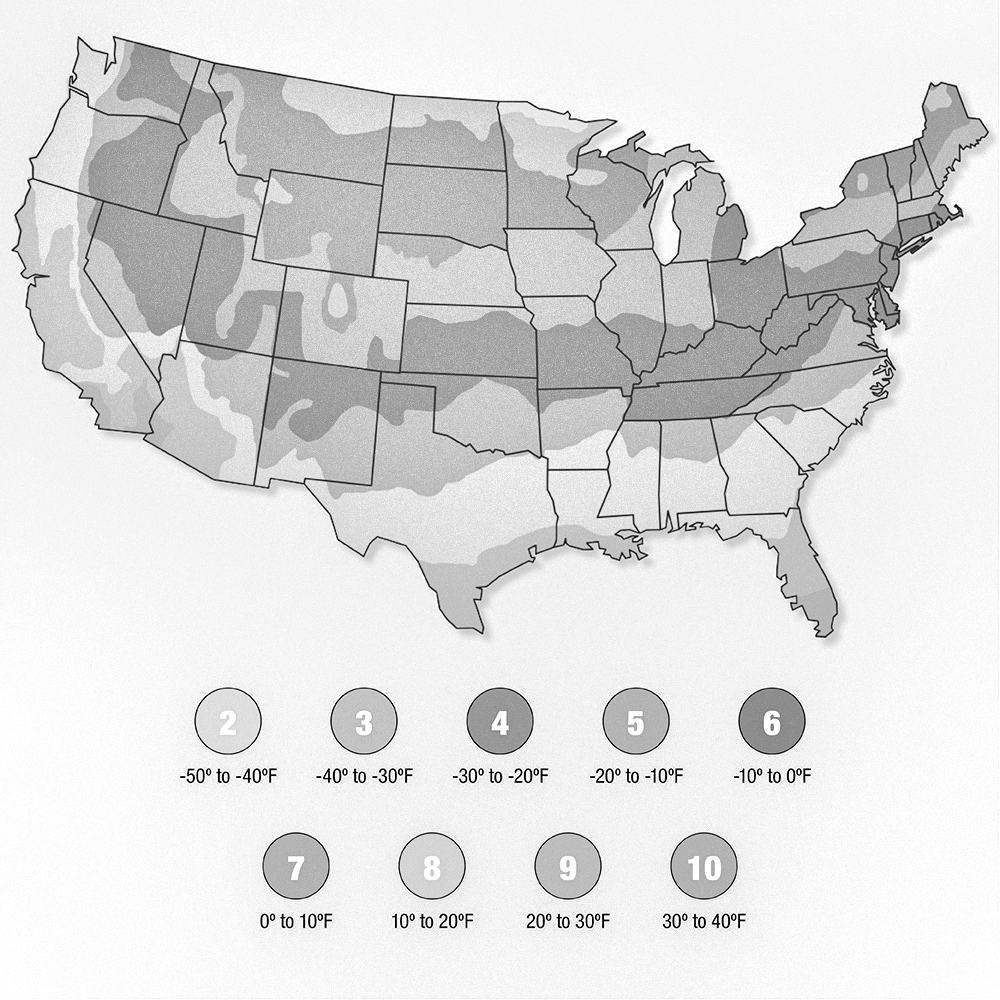
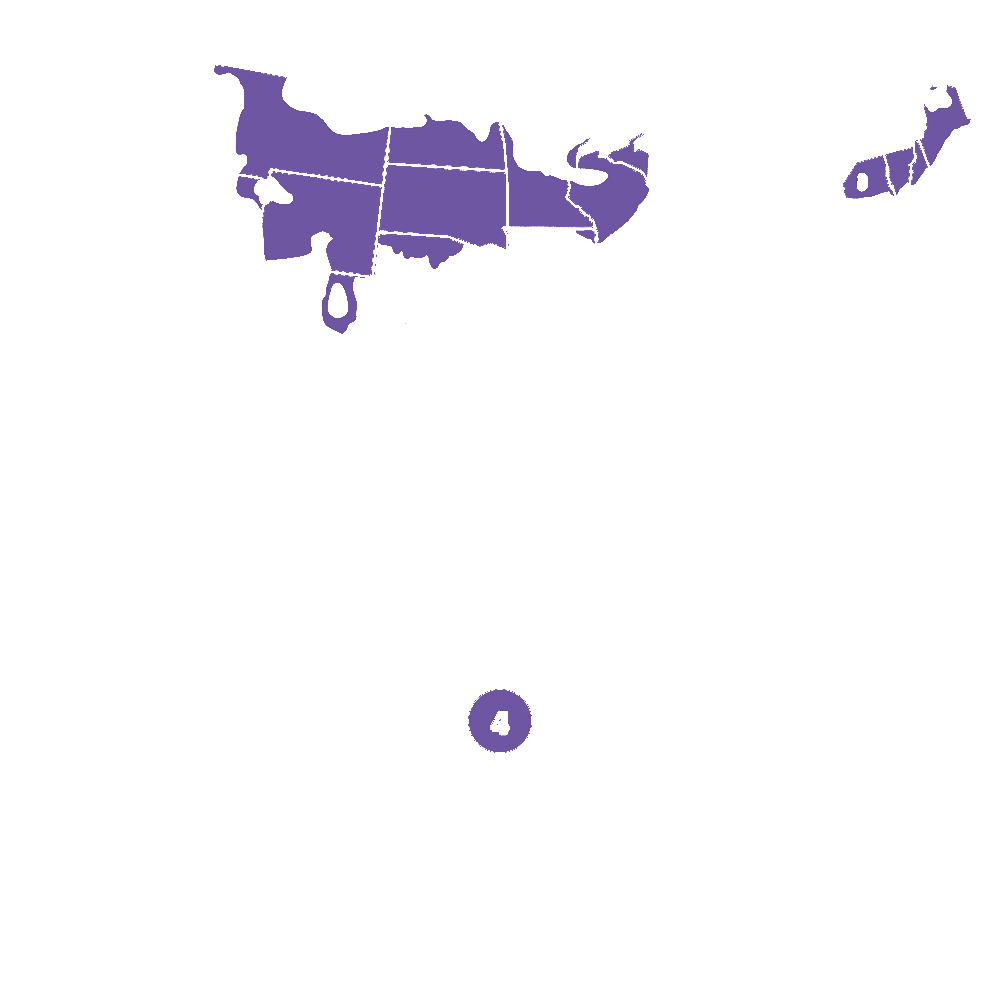
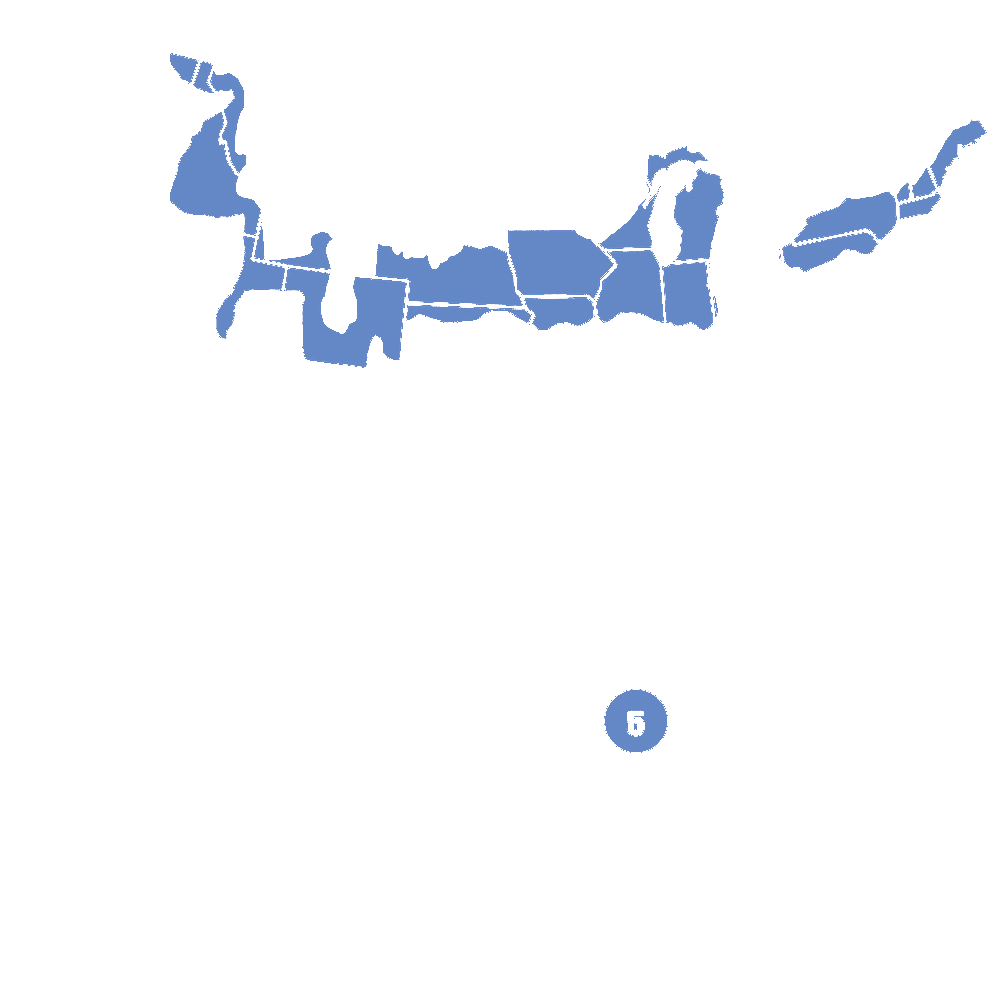
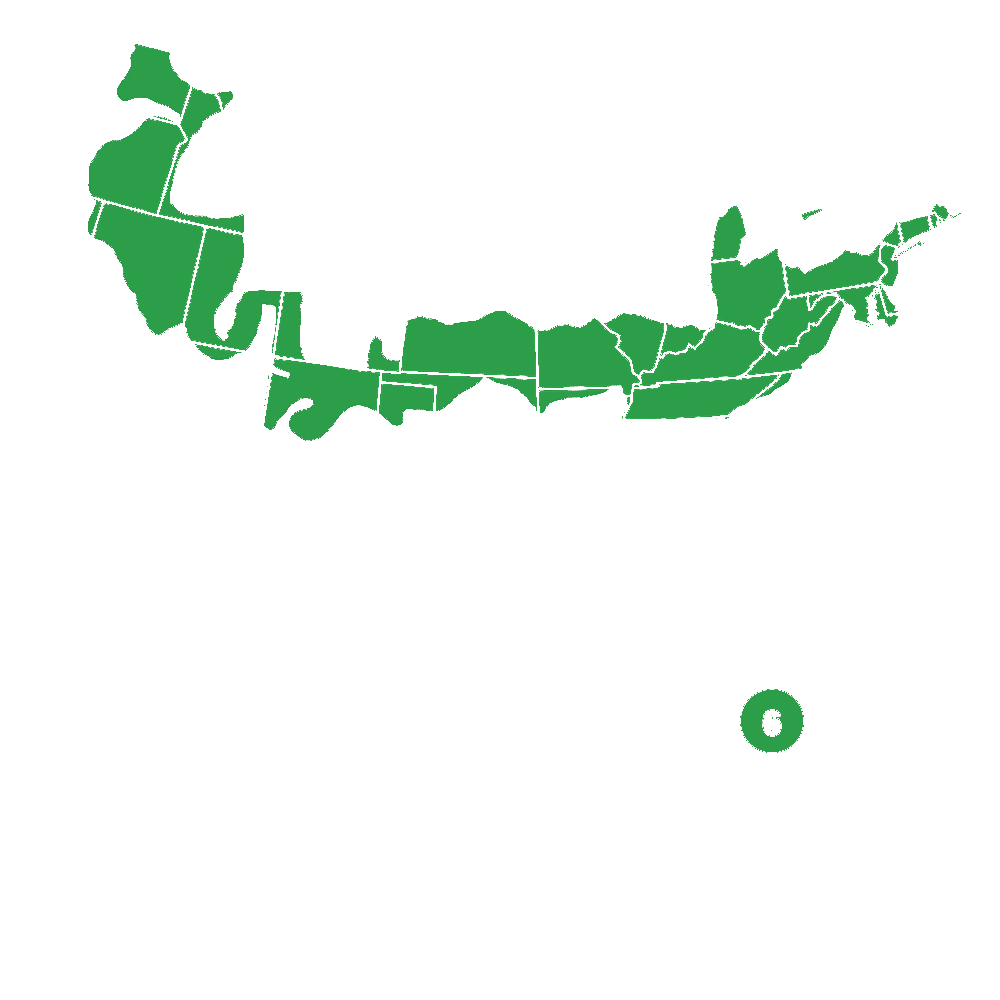
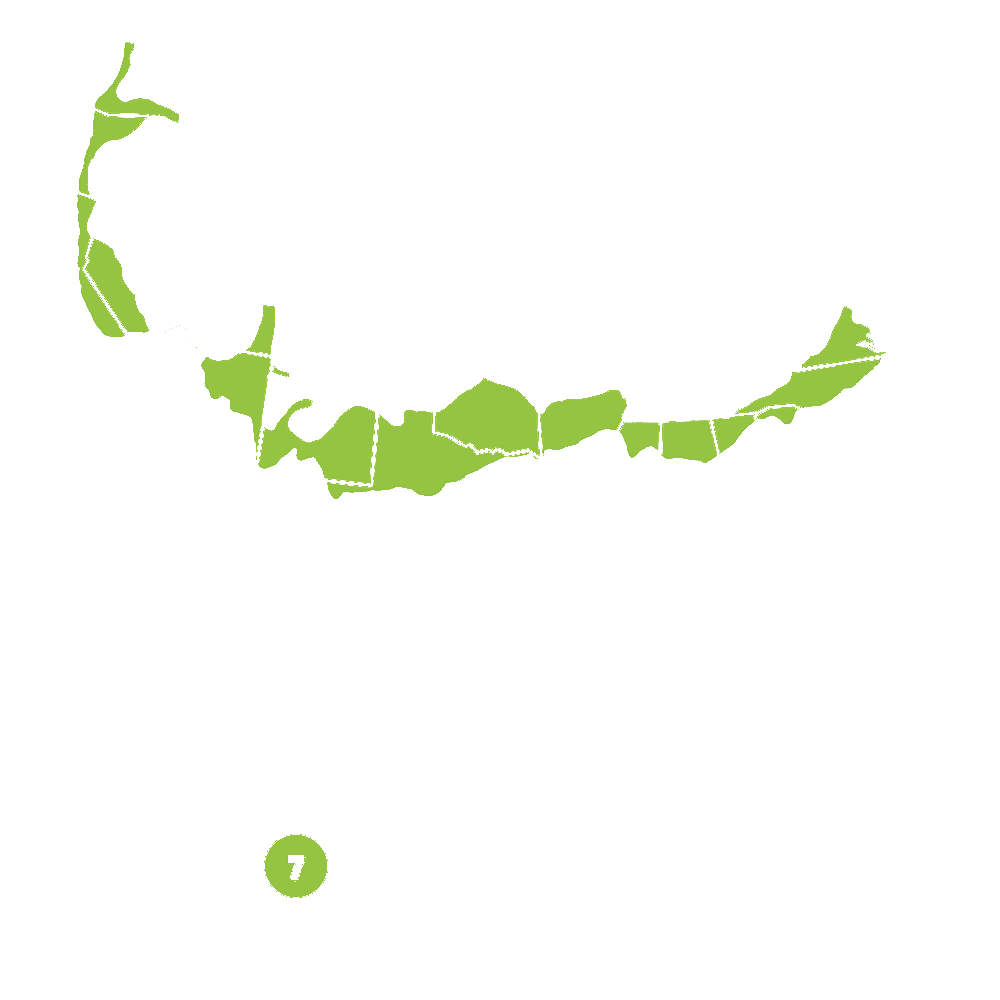
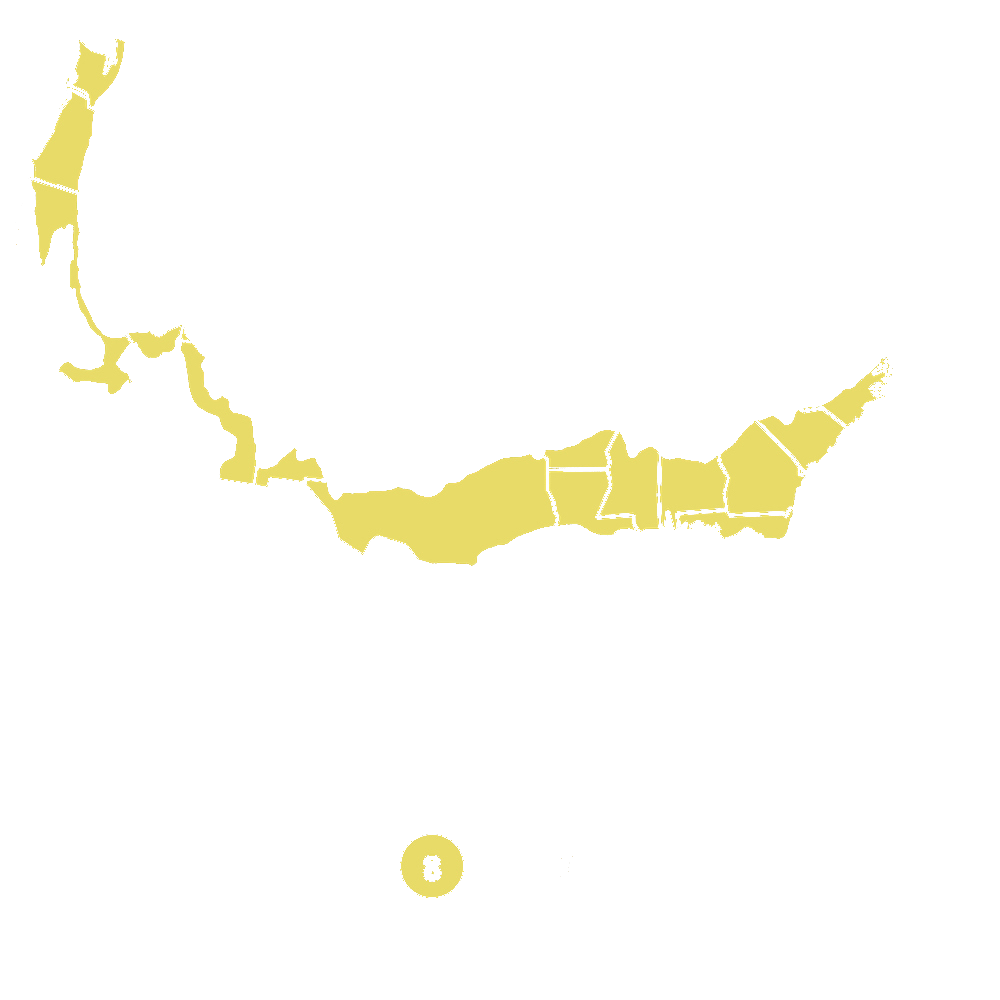
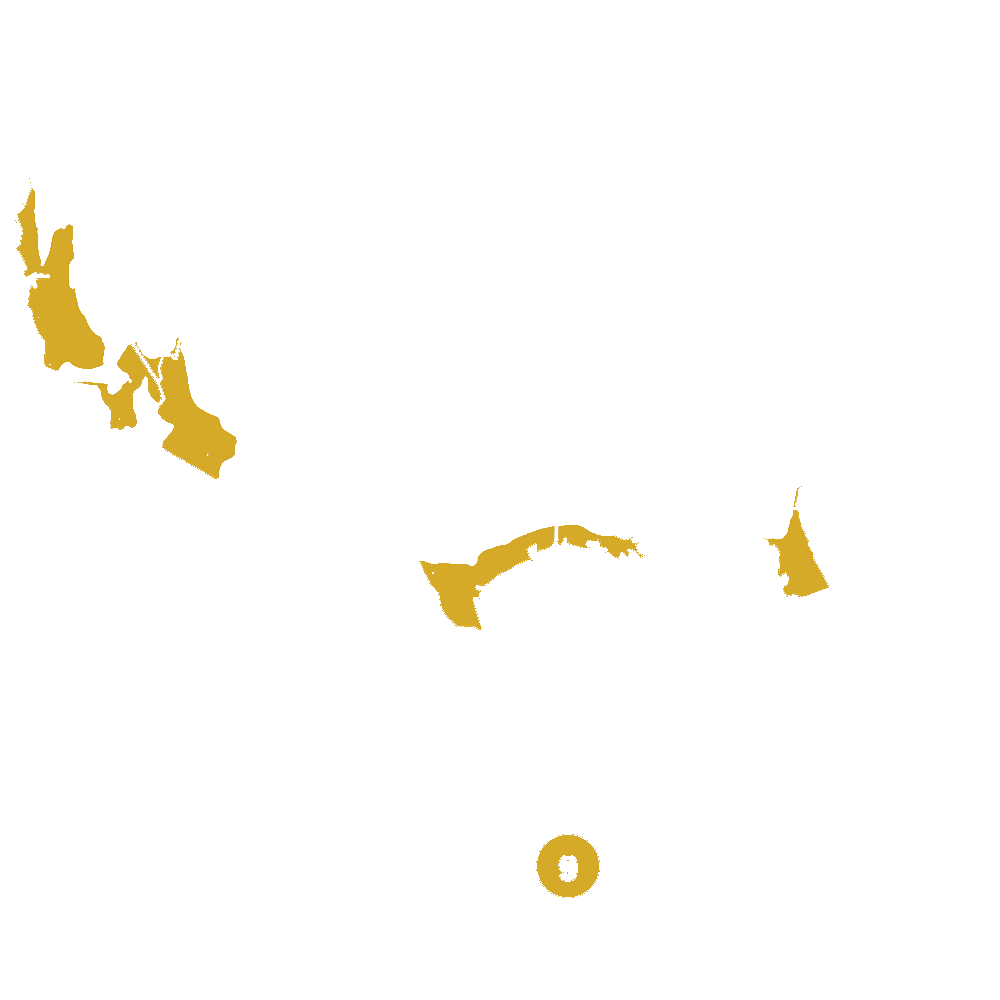
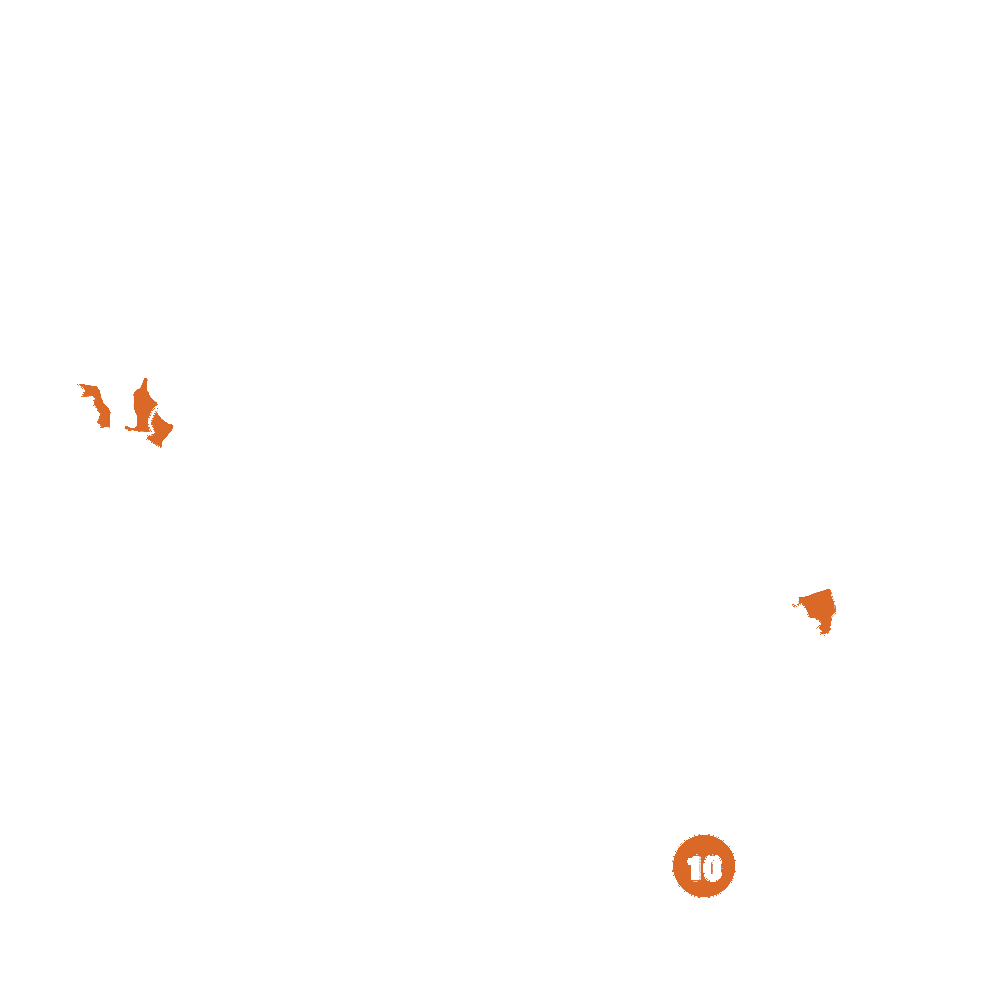
Pollination Info
Pollination Info for Little Suzy Black Eyed Susan
The Little Suzy Black Eyed Susan, also known as Rudbeckia fulgida var. speciosa 'Viette's Little Suzy', is a flowering plant that belongs to the sunflower family. This vibrant perennial plant is native to North America and is known for its bright yellow flowers with dark brown centers.
Pollination
Little Suzy Black Eyed Susans are pollinated by a variety of insects, including bees, butterflies, and beetles. These insects are attracted to the plant's nectar and pollen, which are essential for their survival. As they feed on the flower's nectar, they inadvertently transfer pollen from one flower to another, allowing for successful pollination and the production of seeds.
Benefits of Pollination
Pollination is crucial for the reproduction of plants, including the Little Suzy Black Eyed Susan. By facilitating the transfer of pollen between flowers, pollinators play a key role in the production of seeds and fruits. This process is essential for the continued growth and survival of plant species, including the Little Suzy Black Eyed Susan.
Attracting Pollinators
To attract pollinators to your garden and encourage pollination of your Little Suzy Black Eyed Susans, consider planting a variety of nectar-rich flowers and providing a water source for insects. Avoid using pesticides that may harm pollinators, and create a garden habitat that is welcoming to bees, butterflies, and other beneficial insects.
FAQ
Frequently Asked Questions: Little Suzy Black Eyed Susan
What is Little Suzy Black Eyed Susan?
Little Suzy Black Eyed Susan (Rudbeckia fulgida var. speciosa 'Viette's Little Suzy') is a compact and dwarf variety of the Black Eyed Susan plant. It features bright yellow flowers with dark brown centers, blooming in the summer and fall.
How tall does Little Suzy Black Eyed Susan grow?
Little Suzy Black Eyed Susan typically grows to a height of about 12-18 inches, making it perfect for smaller garden spaces and containers.
What are the growing requirements for Little Suzy Black Eyed Susan?
Little Suzy Black Eyed Susan prefers full sun to partial shade and well-drained soil. It is drought-tolerant once established and attracts butterflies and pollinators to the garden.
How do I care for Little Suzy Black Eyed Susan?
Water regularly during the first growing season to establish a deep root system. Deadhead spent flowers to encourage continuous blooming. Cut back the plant in the fall to promote new growth in the spring.
Can I divide and propagate Little Suzy Black Eyed Susan?
Yes, you can divide Little Suzy Black Eyed Susan in the spring or fall to create new plants. Simply dig up the plant, separate the clumps, and replant them in the desired location.
Is Little Suzy Black Eyed Susan deer resistant?
Little Suzy Black Eyed Susan is considered deer resistant, as deer tend to avoid plants with fuzzy or prickly textures like Black Eyed Susans.
Planting & Care
Planting & Care for Little Suzy Black Eyed Susan
Latin Name: Rudbeckia fulgida var. speciosa 'Viette's Little Suzy'
Sun Exposure: Full sun to partial shade
Soil Type: Well-drained soil
Planting: Little Suzy Black Eyed Susan should be planted in the spring after the last frost. Dig a hole twice as wide as the root ball and place the plant in the hole. Cover the roots with soil and pat down gently. Water the plant thoroughly after planting.
Watering: Keep the soil moist, especially during dry periods. Water the plant at the base to avoid getting the leaves wet.
Fertilizing: Fertilize the plant in the spring with a balanced fertilizer. Follow the directions on the fertilizer package for best results.
Pruning: Deadhead spent flowers to encourage more blooms. Cut back the plant in the fall to tidy it up and promote new growth in the spring.
Pests & Diseases: Little Suzy Black Eyed Susan is relatively resistant to pests and diseases. However, keep an eye out for aphids and powdery mildew, which can sometimes affect this plant.
Propagation: Little Suzy Black Eyed Susan can be propagated by dividing clumps in the spring or fall. Simply dig up the plant, separate the clumps, and replant them in a new location.
Follow these planting and care tips to enjoy the beautiful blooms of Little Suzy Black Eyed Susan in your garden!
Check Out These Verified Customer Reviews:
Customer Reviews
4.8 out of 5 based on 12 reviews
Thank you! Your review has been submitted.
Great quality and fast shipping.
Item arrived in perfect condition, very pleased.
The Little Suzy Black Eyed Susan I purchased is absolutely beautiful! The item arrived in perfect condition and the quality is top-notch. The website was user-friendly and the shipment was fast. Highly recommend!
Item has been added to your cart.

